When my husband was sick for a year, I felt the weight of responsibility. No longer were we equal partners in housework, celebrating life’s events, or earning an income. Instead, each day, I would come home to someone who was resting in bed, unable to engage in conversation. I could do nothing but wait and watch as he suffered . . . and humbly accept the generosity of others.
To receive kindness, meals, and prayers proved to be an unexpected window into the experience of poverty. While we were not, by any means poor in wealth, we were suddenly unable to live beyond our daily efforts. So, in some small way, I found myself poor in spirit and, unable to bring healing and transformation for my husband. I became an emotional wreck.
Yet, as the meals were dropped at our front door by close friends and church family, I was astonished at how hard it was for me to accept this generous offer of help! I needed to acknowledge that, although I had the ability to cook for myself, I was emotionally drained and completely unable.
In stepping to the side and letting others love him—love us—I learnt that in the times when we’re asked to accept generosity, we are really being filled so we can go forth and do likewise.
Earlier this year, sitting in the half mud brick, half straw thatched home of Fulan and Kamta, I heard their story of suffering and illness.
Kamta has always been poor. Fulan, however, has happy memories of her childhood. Her parents had plenty of farmland so she was never without food, but, shortly after they were married as children, Fulan and Kamta were thrown into desperate poverty. And when Kamta fell sick with tuberculosis, life got even harder.
Fulan became the sole provider for her husband and two children—both with disabilities. She collected grass and made ropes to sell, but it wasn’t enough to feed her hungry family—they were on the brink of starvation.
While Fulan was determined to keep her family together, she had no hope that things could ever get better . . . and for six long years, nothing did.
Then, one day, something happened that would change the course of her life for good.
With your generous support, our Christian partner in the field started a Self Help Group in Fulan and Kamta’s community. Kamta joined and took a loan to pay for medical treatment. When he was well enough to be an active member of his family again, Fulan and Kamta took a loan to buy a rope making machine.
When she worked alone by hand, Fulan could only make 2kg of rope a day . . . but the first day Fulan and Kamta used their new machine, this increased to 15kg of rope!
Now, they have an income that their family can actually survive on.
Sitting in their small, dusty home, I saw the pride on their faces and my eyes filled with tears. Like every couple, they still have struggles to overcome. But thanks to your generosity, Fulan and Kamta now have something to hope for.
That memorable day in Nepal, I saw God’s gracious hand at work through your faithful generosity.
But how often have I failed to grasp this understanding of hope in the work we’re a part of, through Baptist World Aid and its partners in the field?
When you give to the Be Hope Christmas Appeal, you bring about real, life-changing transformations for some of the world’s poorest families. What an amazing blessing God gives us when He invites us to be part of that change in other people’s lives!
My husband continues to get stronger and healthier with each passing day. But, since this trip, I am now more convinced than ever that, in the act of generosity, we are giving far more than we could imagine. We are giving hope.
It’s not tangible and it cannot be quantified or measured, but it’s there. In acts of generosity—whether to our local or global neighbours, God invites us to take part in these wonderful stories of healing and restoration.
From the bottom of my heart . . . thank you for the change you are making possible.

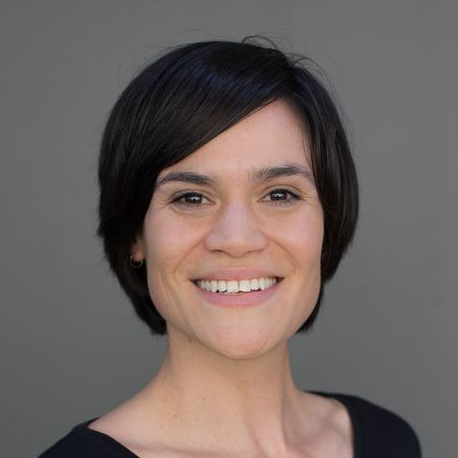
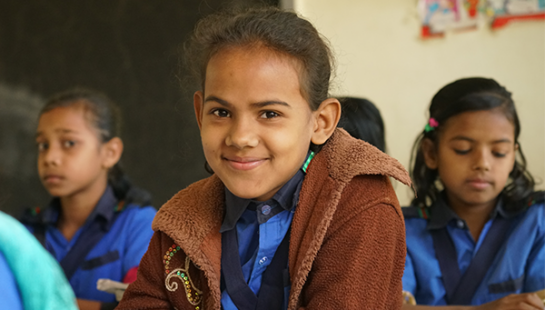
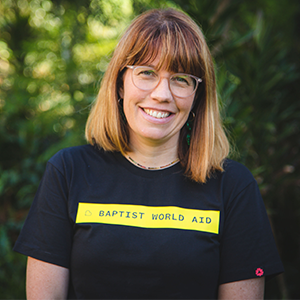 Meredith Benson,
Meredith Benson,
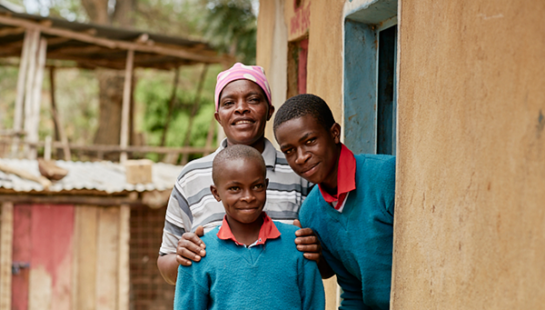
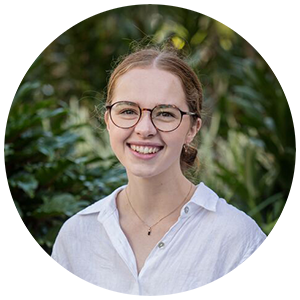 Amelia Ceroni,
Amelia Ceroni,